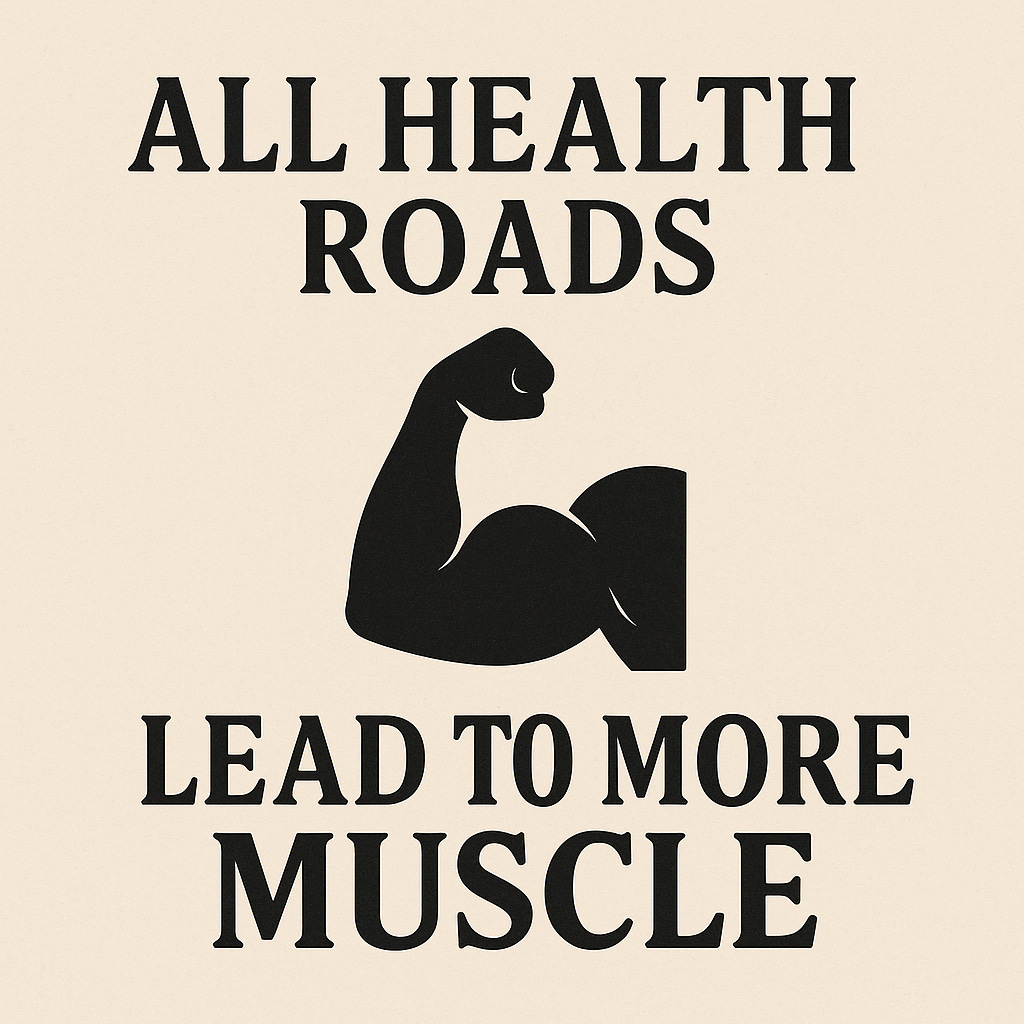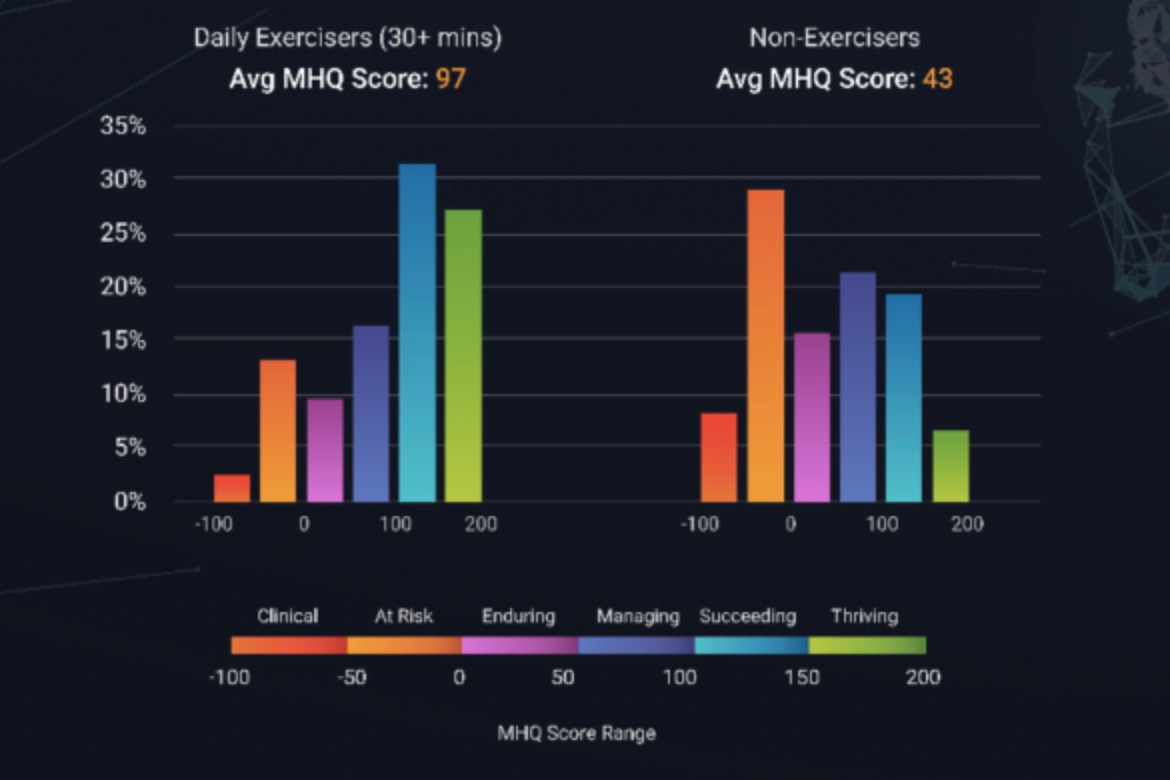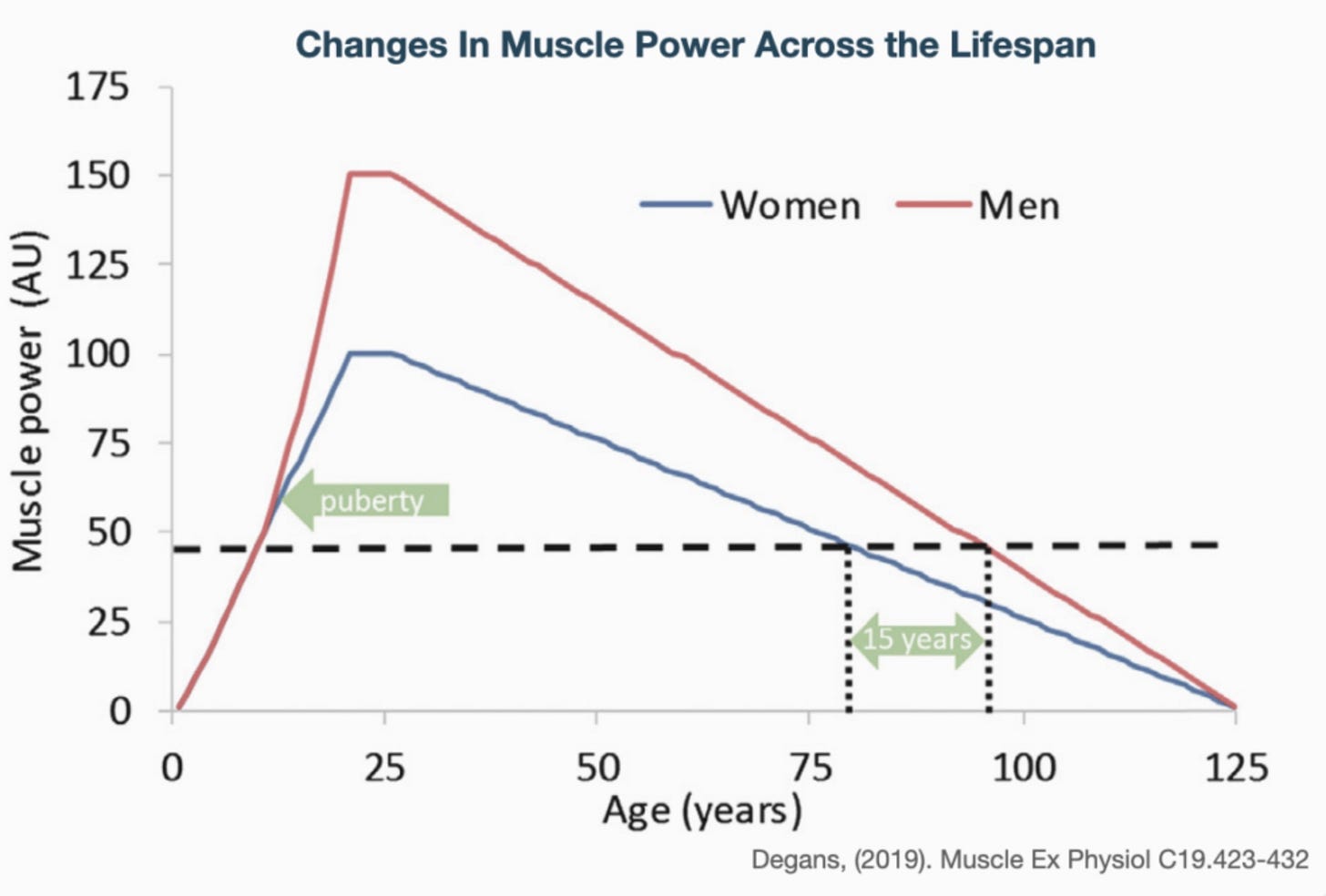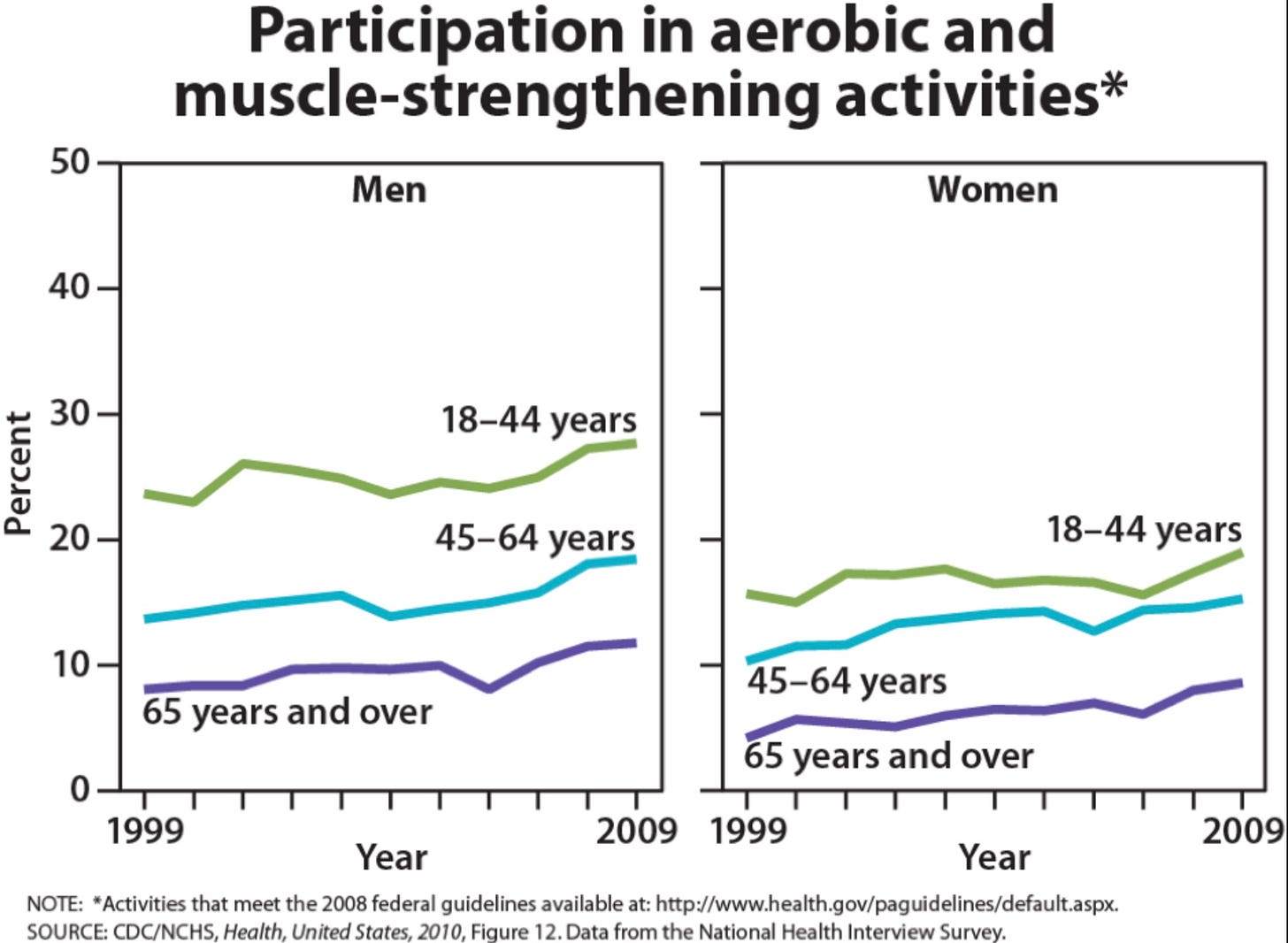All Health Roads Lead to More Muscle
Especially for men over 40
After reading the title, Mr. Skeptical comments, “But people know that not all roads really lead to Rome.”
I just roll my eyes and decide not to respond.
Subconscious Fat at 30,000 feet
Health is a winding Roman road. People start at different milestones—The Atkins Diet, Fit for Life, yoga retreats, CrossFit classes, or fasting apps—but the end destination, whether they admit it or not, is more muscle.
Mr. Skeptical says, "You’re telling me everything from gut health to mood swings boils down to biceps?"
He’s mocking me again, but I ignore him.
“Look at the graph below. MHQ stands for Mental Health Quotient. The higher the MHQ score, the better one’s mental health is. And daily exercisers have over double the MHQ than those who don’t exercise.”
“Yes, you have very personal experience with this, don’t you?”
I glare at Mr. Skeptical. “Yes, when I was in Federal Prison, I lived by the mantra healthy body = healthy mind. Working out daily helped me cope with prison life.”
He smiles smugly. “Sometimes, I just like to remind everyone you’re a felon.”
I shrug my shoulders, but my jaw clenches. “That’s fine with me, for I live up to what I sometimes say about myself that ‘I’m Hermann Diehl, the real deal’, so nothing to hide.”
Subconscious Fat at 10,000 feet
Let’s take a look at the following two graphs below:
The above graph illustrates how, between the ages of 25 and 30, we begin to lose muscle power and become weaker. This makes it even more important that, as we age, we should do more resistance exercises.
But what happens in reality is the opposite. See the graph below:
As you can see in the graph above, for both men and women, we exercise less as we age.
Mr. Skeptical folds his arms and leans back, taking a sip from his sugared coffee. “Yeah, but that’s sort of expected. As you get older, you want to take it easy.”
I lean back and take a sip of my buttered coffee. “If you take it easy by not exercising, your quality of life decreases, and you die sooner than you need to.”
“Maybe, but isn’t that what getting old is all about?”
I look directly into his eyes. “Maybe it is for some people. But I know for me at 56 years old, I feel better than I ever have, and I have a lot more healthy living to do.”
Mr. Skeptical just shrugs his shoulders and avoids eye contact.
Subconscious Fat at Eye-Level
Every serious intervention—sleep, diet, fasting, even breathwork—shows one thing in common: better muscle retention. Sleep optimizes growth hormone and testosterone. Fasting, paradoxically, spares lean muscle tissue when done correctly. Carnivore or high-protein diets are effective mainly because they prevent sarcopenia.
The irony is that most people think of these practices as separate “health hacks.” They are not. They are tributaries of the same river. And that river flows towards more muscle.
Mr. Skeptical sighs, “But what if you're body signals you to be lazy?”
“That’s part of the problem: modern times make it too easy to be lazy. Muscle is expensive to keep around, so nature discards it unless you signal: “I still need this.” Our ancestors didn’t signal politely; they chased buffalo on empty stomachs, climbed trees for honey, and dragged carcasses for miles. Every signal screamed: keep the strength.”
"Or maybe," says Mr. Skeptical, "they were just hangry and didn’t know about Pilates."
I am choosing to hear this as agreement.
Practical Suggestions and Conclusions
Muscle is not a vanity metric; it is the last insurance policy your body writes before the creditors of age come knocking. People over 40 think in terms of weight loss. They should be thinking in terms of preventing muscle loss.
Want better blood sugar control? More muscle.
Better balance? More muscle.
Increased resilience after illness? More muscle.
Even cognitive decline slows when you preserve lean muscle mass.
"Sounds like muscles are the new kale," Mr. Skeptical says.
"Muscle is better because it has no anti-nutrients or oxalates. And here’s the sneaky part: when you focus on muscle, the so-called “side effects” are all positive.
Your joints feel better because muscles absorb shock. Your posture improves because muscles hold you upright. You become metabolically flexible because muscles act as glucose sponges. You sleep better. You think better. Your mood improves.
In the end, all roads do lead to muscle.”
"Fine," says Mr. Skeptical. "But if I grow muscles, I’m naming them after you."
I pretend to be horrified. Secretly, I’m honored.
Be aware.
Other links related to this post:
How Many Sets are Needed to Build Muscle?
The America's were the Garden of Eden
From Chiropractor to Fitness Trainer PS Links on LinkedIn, Facebook, and Instagram. Full disclosure: Chat GPT was used to research and enhance this post.





